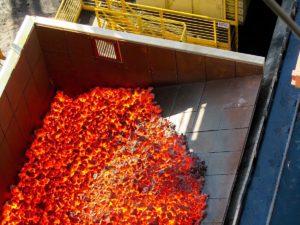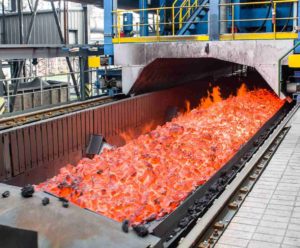
Ukrainian coking plants reduced production of metallurgical coke with 6% moisture content 3.3% year-on-year in H1, 2019, to 5.189 million tonnes.
The Ukrkoks association of coke enterprises told Interfax-Ukraine that 769,000 tonnes of coke was produced in June and 917,000 tonnes in May.
Ukrkoks Director General Anatoliy Starovoit said coke production had fallen in recent months due to lower supplies of coking coal from Russia.
“There wasn’t enough coal. Most of all this affected Dniprokoks, a division of Dniprovsky Metallurgical Plant, formerly Evraz-DMZ and now part of Oleksandr Yaroslavsky’s DCH Group. The plant used to be owned by Russians and it got all its coke from Russia. Now it has changed ownership and the Russian government’s recent decisions to limit coal shipments to Ukraine have affected this enterprise above all, and to some extent Zaporizhkoks,” Starovoit said.
Also, some steel plants have stopped capacity for maintenance and repairs, so demand for coke has fallen.
According to Ukrkoks, coking coal imports from Russia fell year-on-year in H1 2019, to 2.9 million tonnes.
“Since the beginning of the year, coal shipments from the United States have increased only slightly, by 100,000 tonnes, while coal production at Ukrainian mines is practically unchanged compared with the same period of last year,” Starovoit said.

According to customs statistics, published by the State Fiscal Service of Ukraine, coke and semi-coke exports were down 60% in monetary terms, to $504,000.
The majority of deliveries were made to Romania (66.27% in monetary terms), Russia (16.47%) and Moldova (16.47%).
Imports of coke and semi-coke fell by 35.5%, to 168,673 tonnes in January and February 2019, worth $51.463 million (34.7% down). The goods were mainly imported from Russia (89.55% in monetary terms), Poland (8.42%) and the Czech Republic (2.03%).
As reported, Ukraine cut coke and semi-coke exports by 88.6% year-over-year to 25,578 tonnes in 2018. Imports of coke and semi-coke fell by 45.8%, to 839,757 tonnes in 2018, worth $251.724 million (44% down).
Due to hostilities in the eastern part of Ukraine some coalmines and coking plants were left in the Ukrainian government uncontrolled territories.

In 2018, Ukrainian coking plants increased the production of blast furnace coke with 6% moisture content by 4.1% compared to 2017—up to 10.826 million tonnes.
In December 2018, a total of 924,000 tonnes of coke was produced while in November the coke production stood at 917,000 tonnes, the Dnipro-based Ukrkoks association of coking plants told the Kyiv-based Interfax-Ukraine news agency.
Ukrkoks Director General Anatoliy Starovoit said coke chemical plants worked as normal, providing metallurgical enterprises with coke according to the existing production plans.
“In January, the production has decreased to some extent compared to December because of a smaller number of orders and due to some technical reasons. However, the manufacturing enterprises have been supplied with blast furnace coke in full, there are no problems,” he said.
When asked about the plans for the entire 2019, Starovoit said that there are two forecasting options for producing coke in the association: at the level of 2018 and with a 5% increase.
“We have not yet received plans from iron smelters, so we have planned two scenarios for the production of coke. In January, the contracting process is taking place; therefore, later there will be a clearer picture of our production plans,” the director general said.
As reported earlier, in 2017, 14,289 tonnes of enriched coke coal was supplied to coke-chemical enterprises, of which 3.458 million tonnes accounted for Ukrainian production and 10.831 million tonnes were imported. The ratio of imported and Ukrainian coal was 78.8% to 24.2%. In particular, the imports arrived from the Russian Federation—6.3 million tonnes, the United States and Canada—3.923 million tonnes, Kazakhstan—377,000 tonnes, and the Czech Republic—187,000 tonnes.